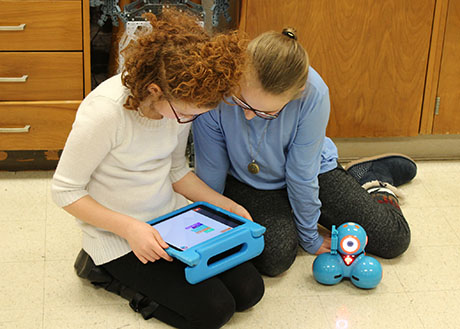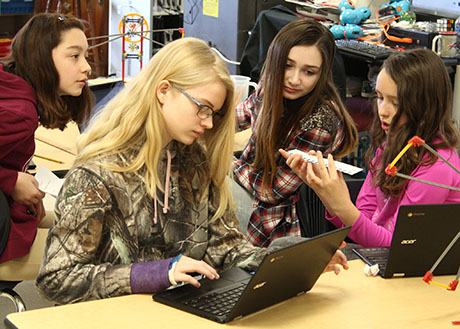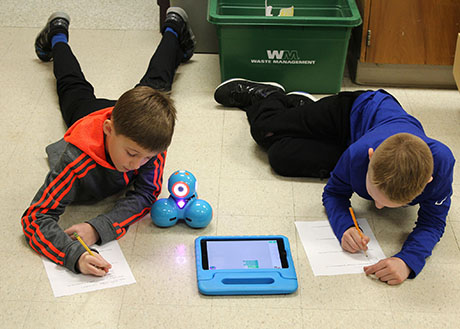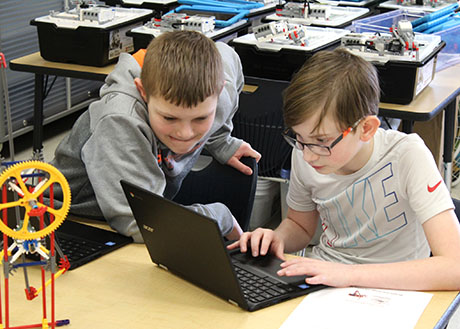
Press release:
Since winning the statewide Be the Change for Kids Innovation Award in 2016, Byron-Bergen Elementary School’s Inquiry-Based Learning Lab has been busy growing, and increasing opportunities for students. The award is given by the New York State School Boards Association.
The Learning Lab, which focuses on STEAM (science, technology, engineering, arts, and math) activities, has moved from special interest class to an integral part of the K-6 curriculum at the school.
“The NYSSBA award of $5,000 helped us jumpstart the Learning Lab,” said Principal Brian Meister. “We were able to fully commit to the project-based learning program, purchase our first robotics and other materials, and offer the class to all of our students.”
“The Lab is very student-driven,” Meister said. “Our young people are thoroughly and deeply engaged in learning; we are finding that the curriculum is evolving based on student ideas.”
In September 2017, the district was awarded $85,000 in educational funding with the help of State Senator Michael H. Ranzenhofer. The funding will be used to further develop the Lab into a cutting-edge center for STEAM, and to explore expanding the program to the Jr./Sr. High School.
Learning Lab teacher Craig Schroth is excited about the enthusiasm students have shown for the program. He can usually be found in the classroom, working with inquiring minds — helping fourth-graders learn block programming with Dash™ robots, or guiding sixth-graders in using a CAD program and LEGOs™ to design and build model wind turbines.
Schroth said: “All of our students, boys and girls, kindergarten through sixth grade, have the same level of excitement about the projects,” “Our little ones begin by learning basic math and science, logic, and collaboration skills with simple tools, like Bee-Bots®.
"Older students quickly progress to more involved projects like designing video games, satellites, or energy efficiency systems. They use teamwork, design trials, geometry, environmental science, and programming in JavaScript. Recent additions, like our 3D printers, are opening new avenues of exploration.
“We are excited about the new resources we have been able to secure thanks to the new grant. In the first year of this program, we used materials like cereal boxes, popsicle sticks, and tape. Now, students are able to create more sophisticated prototypes.”
“My favorite part of the class, however, is that the focus remains on facilitating ‘design thinking’ that is not device specific. The most important resource for us lies in student ideas and creativity.”
As students use the engineering design process of data gathering and collaboration to continually improve their results, they learn lifelong problem-solving skills that will help them in whatever fields they may find themselves.
“They learn how to work together, how to think creatively and embrace change, how to trial-and-fail until they find solutions,” Meister said.



